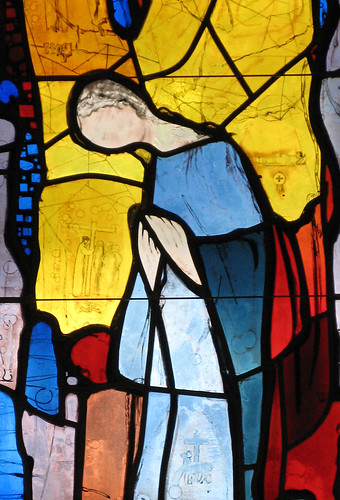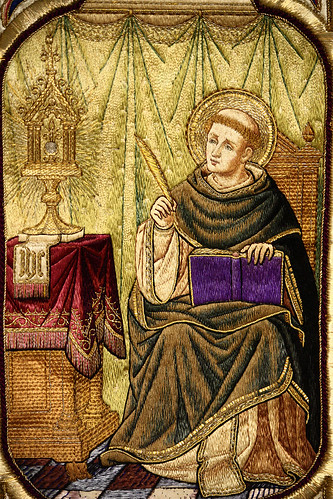 Recently, the British PM addressed the House of Commons, where he acknowledged, amongst other things, that British soldiers had fired on unarmed and fleeing civilians in Derry or Londonderry—depending on which side you take. He did this based on the outcome of the Bloody Sunday Inquiry and consequently, on behalf of the British Government, he apologised to the families of the victims for the event that took place in 1972. Three days later, on the 18th of June, a headline in the New York Times read “In Bloody Sunday Apology, a Promise of Closure”.
Recently, the British PM addressed the House of Commons, where he acknowledged, amongst other things, that British soldiers had fired on unarmed and fleeing civilians in Derry or Londonderry—depending on which side you take. He did this based on the outcome of the Bloody Sunday Inquiry and consequently, on behalf of the British Government, he apologised to the families of the victims for the event that took place in 1972. Three days later, on the 18th of June, a headline in the New York Times read “In Bloody Sunday Apology, a Promise of Closure”.Have you notice that the word “closure” frequently crops up from those who seek justice? It is a word which is important to us not just from a personal perspective. For example, the corporate world is constantly looking out for deals to close. It is possible that we have imported this corporate word into our everyday life as we look for closures in our lives. This Sunday, the Gospel may help us reflect further on this need of closures, their significance in our lives and their place in the theme for today: “The Lord we serve”.
First, the arresting line of today’s Gospel is “Jesus resolutely took the road for Jerusalem”. And mind you, this is taken from Luke Chapter 9. We are not even halfway through the Gospel and we encounter a stiffening of Christ’s posture. Actually, I like another translation better: “He set His face for Jerusalem”. The imagery is evocative… Christ has a mission. He is not distracted by anything, not even righteous revenge on the Samaritans, as He is intent on accomplishing His mission.
Therefore, the severity of Christ’s responses to the man who wanted to bury his father and to the man who needed to say goodbye to his parents must be seen in this context. Setting His face for Jerusalem underlines the unconditional nature of discipleship: “Once the hand is laid on the plough, no one who looks back is fit for the kingdom of God”.
Here we may begin to ask what the connexion is between closures and discipleship.
In the second and third man’s responses to Christ’s invitation to follow Him, we find conditions attached to their responses. If you scrutinise them closely, these men’s conditions simply symbolised the closures they needed in their lives. They were not reluctant to follow Christ. In fact, they were eager to follow Christ but, they just needed to finish some tasks before they embarked on the next phase of their lives.
In many ways, we are like these men. We look for closures in our lives because they befit an enlightened existence. First, we do not just leave something half done and move on. Parents who have children changed their major halfway through know the exasperating cost of transferring. Those of us who have had to clean up after somebody know the annoyance and the irritation that comes with the unpleasant task. When a job is completed, there is a sense of accomplishment that opens up to new possibilities and new beginnings. Secondly, some of us carry the pains of unsaid goodbyes; especially of a loved one. Nothing rends the heart more than a death without proper goodbyes.
Thus, closures are important and necessary to our sanity—spiritual, psychological and also physical. The first reading actually attests to that as Elijah allowed Elisha to go home to kiss his father and mother goodbye.
The question for us is this: if closures were necessary to human existence, why did Christ not take note of them? In fact, his responses came across as cold and quite heartless. Now, if these responses sound alien and if they come across as harsh, it could be that they are upsetting the assumptions we have of life. We have somehow lost a vision of life—of eternal life to be exact--because an exaggerated preoccupation with closures may come from a vision of eternity that is impaired. Unfortunately, this is basically the vision of most people—who cannot see beyond temporal life. Two examples—reality TV and documentaries may illustrate the impaired vision of eternal life. Reality TV and documentaries are both entertaining as well as educational, didactical or informative. [1] But what reality TV and documentaries do is to take apart what might belong to the realm of the mysterious. We do not need to know everything in the private lives of people, least of all the salacious and sordid details of their sex lives nor do we need to know everything about nature. The human drive to know is divinely endowed but it is not an absolute drive. That was why God said to Adam: “Eat anything or everything except the fruit of this one tree”. And our Liturgy confirms this when it says, “And on that day, we will see You, God, as You are”. For now, we see murkily and so it is quite alright that we do not know everything because the need for certainty drives us to immediacy whereas mystery allows us to bear with what is beyond our control.
Because we are driven or enslaved by the phantom of immediacy and certainty, the lack of closure usually means people stop living. Those who have fallen in love with people who cannot return their love know how debilitating the feeling of unrequited love is. There is no closure when one is love-sick and one practically pines away for the unattainable. The same goes for those unable to forgive and are forever trapped in a life-sapping or enervating hurt. A lot of energy is used in trying to force a closure.
When our vision of life is purely temporal, the messiness and the uncertainties of life become added burdens. Now, even though it is good to say goodbye or to complete a task, we learn from the Gospel today that discipleship in Christ falls within the context of His Father’s eternal project. If you like, in the context of discipleship, Christ’s responses to these men were: move on. We move on because in the bigger vision of life eternal, everything, even the unfinished business, has a place. A present and incomplete picture is not always disastrous but rather it may be an imperfection waiting for completion. So, the messiness of life is not a final verdict. We must not let it detract us from giving what we have and all we have to Christ. That is the meaning of service. [2]
Christ invites us to follow Him. His discipleship is intense and often we do not feel up to the demands of the call; we feel that we do not measure up. As a result of this perceived failure to measure up and coupled with a temporal view of life, we will certainly feel the pressure to find closure in this life. It is as if we need to complete everything here in this life. Sometimes we find our closure by “perfecting” ourselves in order to give God a better present than we are. [3] But, St Paul says otherwise. As he tried to get rid of his so-called favourite sin, he came to the realisation that he had only Christ’s strength to rely on. With Christ’s grace, our strength grows out of our weakness. Therefore, when everything is not complete, and even when our lives find no closures, God can still do great things through us…
To serve the Lord, we need a better grasp of eternity but not only that. To serve Him better, we need a spirituality of the “Other” world because a temporal vision of life will only trap us in the closures of false perfection in this life. We ought to seek for closures but we need the wisdom to recognise that some closures are only possible in the next life and because of that, it is possible to serve the Lord despite our pains and sorrows. The other world of Christ our Lord allows us to put our hands to the plough of incompleteness and not look back. According to St Paul, we can run the race and finish it.
FOOTNOTES:
[1] I like the Jerry Springer Show. The hair-pulling histrionics and slapping antics make for great entertainment and titillation. What about emails? How many of us have received emails giving us details on how we can prevent our future stroke. We are being informed to death!
[2] You may begin to see that in serving the Lord, sin (the lack of closure) is not a good reason to stop serving. I guess this explains why divorced Catholics in an irregular relationship, meaning a divorced Catholic in a second marriage outside the Church, [in the old days, we called that living in sin] is still obliged to attend Mass on Sunday even if he or she cannot receive Holy Communion.
[3] It explains why people shy away from confessions. The usual excuse is “Why go for confessions when I am going to commit the same sins again”? The flipside of this question is an assumption that confession is meant to wipe the slate clean (therefore denoting a closure) so that the end result is a perfect gift of ourselves we present to God. It is no less than the pride of Babel in which we are really saying to God, “Let me be as perfect as You and only then will You be worthy of me”.

